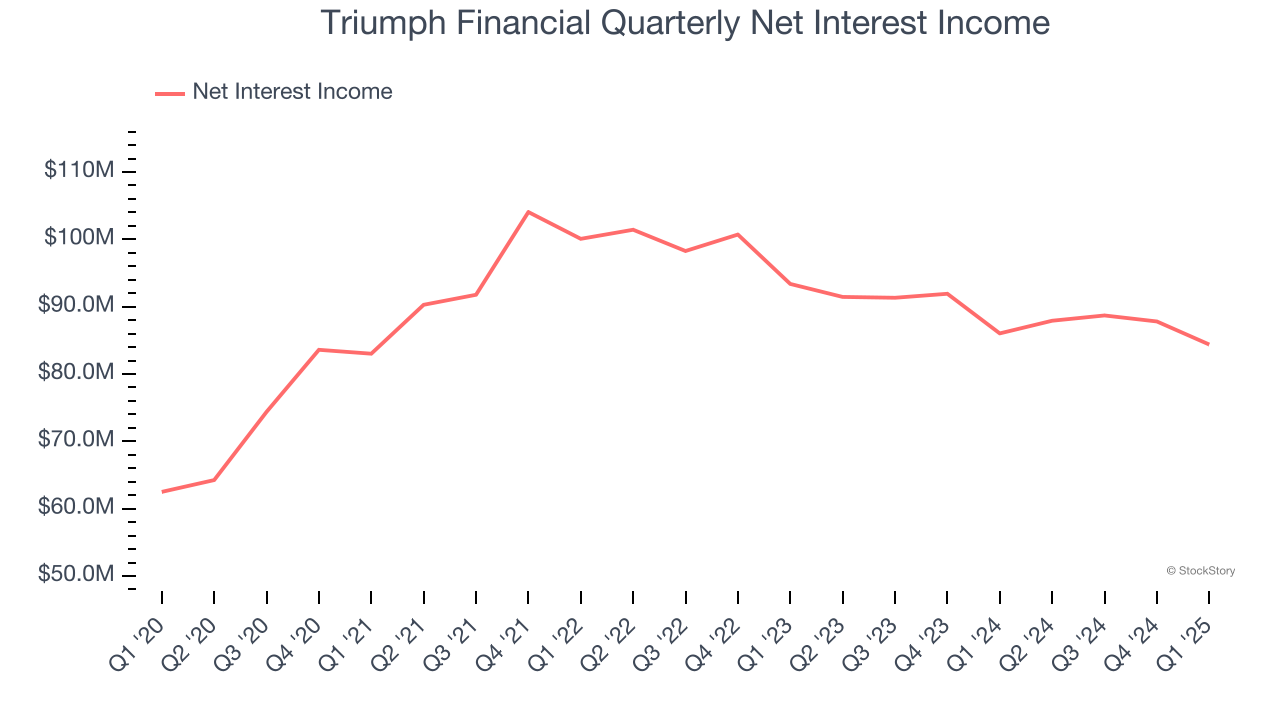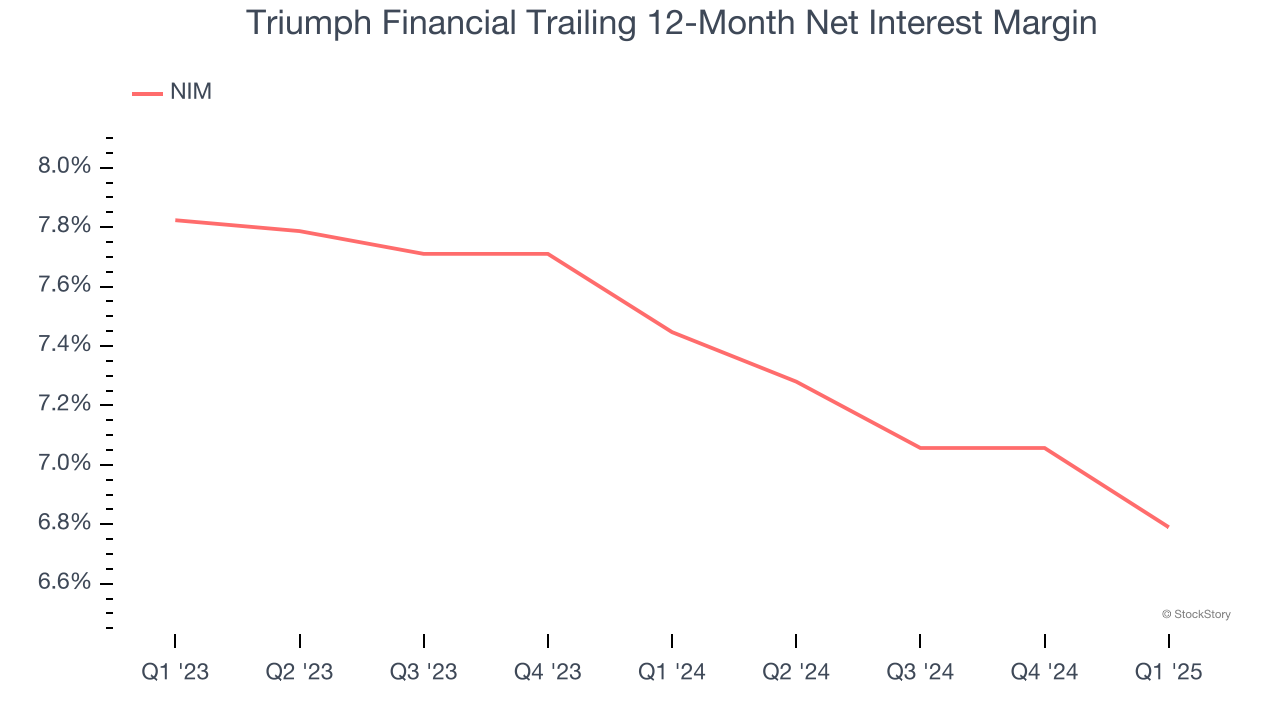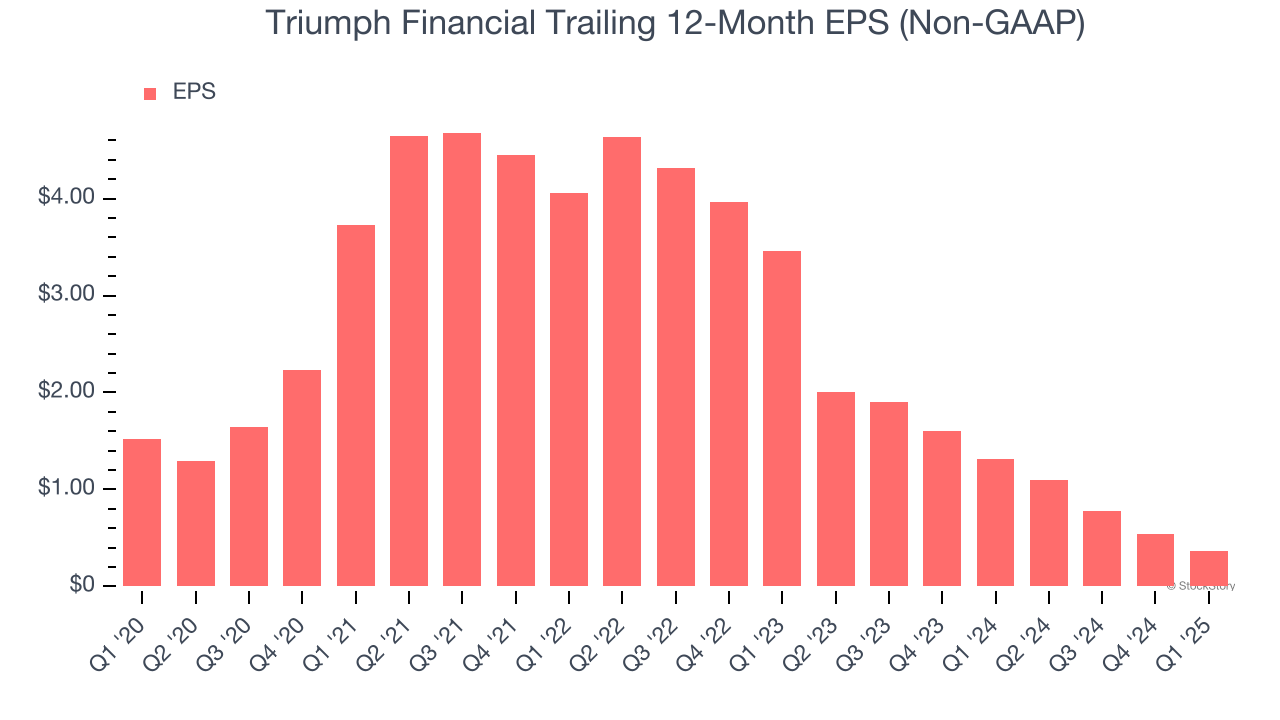
What a brutal six months it’s been for Triumph Financial. The stock has dropped 38.2% and now trades at $57.23, rattling many shareholders. This was partly driven by its softer quarterly results and may have investors wondering how to approach the situation.
Is there a buying opportunity in Triumph Financial, or does it present a risk to your portfolio? See what our analysts have to say in our full research report, it’s free.
Why Is Triumph Financial Not Exciting?
Even though the stock has become cheaper, we're cautious about Triumph Financial. Here are three reasons why we avoid TFIN and a stock we'd rather own.
1. Net Interest Income Points to Soft Demand
Markets consistently prioritize net interest income growth over fee-based revenue, recognizing its superior quality and recurring nature compared to the more unpredictable non-interest income streams.
Triumph Financial’s net interest income has grown at a 3.4% annualized rate over the last four years, worse than the broader bank industry. Its growth was driven by an increase in its net interest margin, which represents how much a bank earns in relation to its outstanding loans, as its loan book shrank throughout that period.

2. Net Interest Margin Dropping
Revenue is a fine reference point for banks, but net interest income and margin are better indicators of business quality for banks because they’re balance sheet-driven businesses that leverage their assets to generate profits.
Over the past two years, Triumph Financial’s net interest margin averaged 7.1%. However, its margin contracted from 7.8% to 6.8% over that period.
This decline was a headwind for its net interest income. While prevailing rates are a major determinant of net interest margin changes over time, the decline could mean Triumph Financial either faced competition for loans and deposits or experienced a negative mix shift in its balance sheet composition.

3. EPS Trending Down
Analyzing the long-term change in earnings per share (EPS) shows whether a company's incremental sales were profitable – for example, revenue could be inflated through excessive spending on advertising and promotions.
Sadly for Triumph Financial, its EPS declined by 24.6% annually over the last five years while its revenue grew by 7.6%. This tells us the company became less profitable on a per-share basis as it expanded.

Final Judgment
Triumph Financial isn’t a terrible business, but it doesn’t pass our bar. After the recent drawdown, the stock trades at 1.5× forward P/B (or $57.23 per share). At this valuation, there’s a lot of good news priced in - we think other companies feature superior fundamentals at the moment. Let us point you toward a top digital advertising platform riding the creator economy.
Stocks We Would Buy Instead of Triumph Financial
The market surged in 2024 and reached record highs after Donald Trump’s presidential victory in November, but questions about new economic policies are adding much uncertainty for 2025.
While the crowd speculates what might happen next, we’re homing in on the companies that can succeed regardless of the political or macroeconomic environment. Put yourself in the driver’s seat and build a durable portfolio by checking out our Top 5 Growth Stocks for this month. This is a curated list of our High Quality stocks that have generated a market-beating return of 183% over the last five years (as of March 31st 2025).
Stocks that made our list in 2020 include now familiar names such as Nvidia (+1,545% between March 2020 and March 2025) as well as under-the-radar businesses like the once-micro-cap company Tecnoglass (+1,754% five-year return). Find your next big winner with StockStory today.
